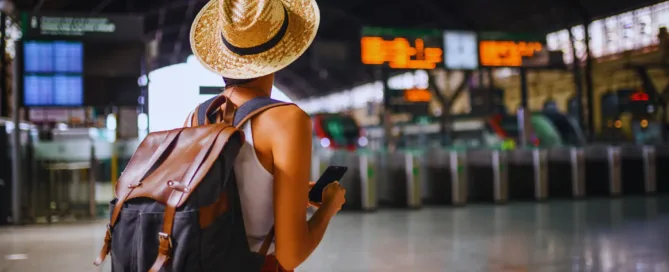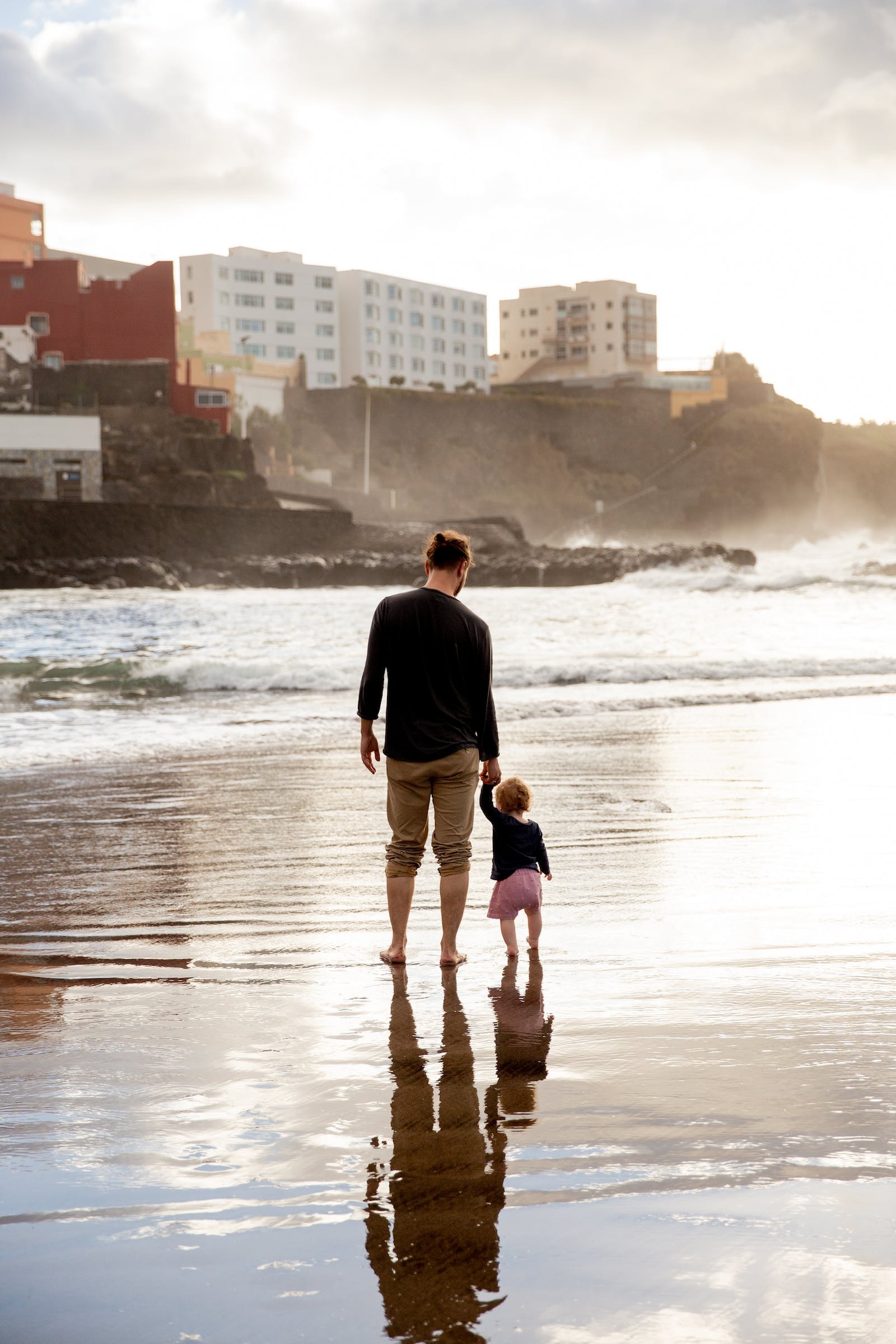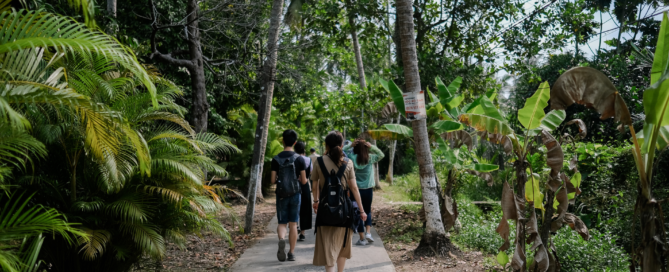6 Underrated Travel Destinations Worth Exploring in 2025
For travelers seeking new experiences beyond the familiar tourist traps, choosing underrated travel destinations can uncover hidden gems that enrich any journey. Venturing to these lesser-known spots not only offers unique cultures and stunning landscapes, but it also provides an opportunity to create unforgettable memories away from the crowds.
Many travelers often overlook these captivating locations, but they are worth considering for a bucket list adventure. Each hidden gem presents its own charm and character, inviting discovery and connection with local traditions. Exploring these six underrated travel destinations can inspire wanderers to broaden their horizons and find beauty in the unexpected.
Why Choose Underrated Travel Destinations
Exploring underrated travel destinations offers a chance to engage with authentic experiences, evade crowded tourist hotspots, and embrace sustainable travel. These locations often provide rich cultural insights, stunning natural beauty, and warm hospitality.
Authentic Culture and Unique Experiences
Underrated destinations frequently showcase cultures that remain untouched by mass tourism. Visitors can experience local traditions, unique art forms, and genuine hospitality from residents who take pride in their heritage.
For instance, in towns near the Balkans, travelers can enjoy local culinary tours featuring traditional dishes that aren’t found in larger cities. Art lovers can explore lesser-known galleries that highlight regional artists, providing a refreshingly intimate art scene. These experiences create lasting memories distinct from typical tourist attractions.
Avoiding Crowds and Over-tourism
Traveling to less popular destinations allows individuals to avoid the overwhelming crowds often found in major cities. This can enhance the overall experience by allowing for more personal interactions with locals and a deeper connection with the surrounding environment.
For instance, nature lovers can trek through stunning landscapes without the distraction of throngs of visitors. By choosing quieter spots, travelers can appreciate natural wonders, whether it’s secluded beaches or serene mountain ranges, fostering contemplation and appreciation for the beauty around them.
Sustainable and Responsible Travel
Visiting underrated locations often promotes sustainable travel practices. These areas typically depend less on tourism revenue, encouraging travelers to contribute positively to local economies.
Staying in locally owned accommodations or dining in family-run restaurants further supports the community. This approach reduces the carbon footprint associated with heavy tourism and promotes responsible travel. By choosing hidden gems, travelers help preserve the cultural and natural integrity of these destinations while fostering a sense of global stewardship.
Top 6 Underrated Travel Destinations Around the World
Destinations like Luang Prabang and the Faroe Islands showcase unique landscapes and rich cultures that often go unexplored. These hidden gems offer travelers an opportunity to connect with nature and experience authentic local life.
Luang Prabang, Laos
Luang Prabang is a UNESCO World Heritage Site renowned for its well-preserved architecture and stunning natural scenery. Nestled between the Mekong and Nam Khan rivers, it features vibrant night markets and tranquil temples.
Visitors can witness traditional ceremonies, such as the almsgiving ritual at dawn, where monks collect offerings from locals. The nearby Kuang Si Falls presents a striking visual with turquoise waters ideal for swimming.
Culinary experiences abound, from street food stalls to upscale restaurants serving Laotian cuisine. At sunset, the views from Mount Phousi offer a breathtaking perspective of the city and surrounding landscapes.
Faroe Islands, Denmark
The Faroe Islands, a group of 18 volcanic islands between Iceland and Norway, boast dramatic cliffs and rich wildlife. With their rugged terrain and picturesque villages, they attract travelers seeking natural beauty away from crowded tourist spots.
Birdwatchers will appreciate the diverse avian species, including puffins, which nest among the cliffs during summer. Hiking trails vary in difficulty, leading to breathtaking views over steep fjords and the Atlantic Ocean.
The islands also have a rich culture, evident through local music and annual festivals. Visitors can savor traditional Faroese dishes at small eateries, where fresh seafood plays a prominent role.
Salento, Colombia
Salento is a quaint town in Colombia’s Coffee Triangle, known for its stunning landscapes and rich coffee culture. Surrounded by lush mountains and vibrant plantations, it serves as a gateway for exploring the region’s coffee farms.
Travelers can join guided tours to learn about coffee production, supporting local farmers in the process. The Cocora Valley, famous for its towering wax palms, offers hiking opportunities among some of the most beautiful landscapes in Colombia.
Charming hostels and boutique hotels provide a relaxed atmosphere for visitors. The local cuisine features arepas and traditional dishes, providing a delightful taste of Colombian culture.
Etosha National Park, Namibia
Etosha National Park is a prime destination for wildlife enthusiasts. Covering approximately 22,750 square kilometers, it is home to a vast array of animals, including elephants, lions, and rhinos.
The park features unique salt pans, which create stunning landscapes that draw photographers from around the world. Waterholes scattered throughout the park provide excellent opportunities for game viewing.
Visitors can enjoy self-driving safaris or join guided tours to explore diverse habitats. The park’s rich biodiversity makes it a key location for conservation efforts, attracting eco-conscious travelers globally.
Captivating Highlights of Each Destination
Each of these underrated travel destinations offers unique landscapes, rich histories, and distinct culinary experiences. From breathtaking natural wonders to vibrant local markets, these locations invite exploration.
Stunning Landscapes and Natural Attractions
Nature lovers will find themselves enchanted by places like Kakheti, known for its rolling hills and lush olive groves. Here, visitors can embark on treks through unspoiled terrain, accompanied by views of vineyards and mountains.
The Kuang Si Falls in Laos is another breathtaking site. Its tiered pools of turquoise water provide a stunning backdrop for swimming and photography. Tropical rainforests surround the falls, creating a serene environment for adventure seekers.
Other noteworthy natural features include White Sands, renowned for its expansive beaches that cater to relaxation and water sports. Each destination presents opportunities for unique experiences, showcasing the beauty of untouched landscapes.
Rich History and Traditions
Colonial architecture can be seen in places like Puebla, Mexico, where vibrant tiles and baroque structures narrate stories of the past. The city holds festivals that blend indigenous and Spanish cultural elements, offering a glimpse into its rich heritage.
Additionally, the World Heritage Site of Machu Picchu provides profound historical insights. Visitors can explore ancient ruins while engaging with local guides who share tales of Incan civilization. This profound history evokes a sense of connection to a vibrant past.
In other destinations, local traditions manifest in daily life. Festivals, dances, and artisanal crafts reflect the cultural diversity and historical significance, enriching the travel experience.
Distinctive Cuisine and Local Markets
Culinary enthusiasts will appreciate the diversity of local markets like those in Morocco. Markets overflow with spices, fresh produce, and traditional dishes. Tasting local street food allows travelers to savor authentic flavors that represent the culture.
In Kakheti, wine lovers can explore vineyards that produce unique regional varieties. Local cuisine often features hearty dishes infused with fresh ingredients and cultural significance. Sampling these culinary delights offers a deeper connection to the area.
Furthermore, the experience of dining in local eateries reveals the essence of communal life. Engaging with vendors and chefs opens opportunities for cultural exchange and understanding of local traditions.
Expert Tips for Visiting Lesser-Known Destinations
When visiting lesser-known destinations, careful planning and cultural sensitivity are essential for a fulfilling experience. Understanding the local customs and setting a well-thought-out itinerary can enhance the adventure significantly.
Planning Your Itinerary
Planning is crucial when exploring off-the-beaten-path locations. Travelers should research seasonal weather patterns, as some areas may be prone to heavy rains or extreme heat that could affect outdoor activities.
Utilizing local guides can provide deeper insights into the area. Consider these steps:
- List attractions that align with interests.
- Set specific time frames for each location.
- Confirm transportation options, as public transit might be limited.
Always remain flexible; unexpected opportunities can arise, and adjustments may be necessary.
Cultural Etiquette and Respectful Tourism
Cultural awareness is vital in lesser-known destinations. Tourists must familiarize themselves with local customs and behaviors to avoid unintentional offense. Taking the time to learn key phrases in the local language can show respect and foster goodwill.
Here are actions to consider:
- Dress appropriately, particularly in religious sites.
- Understand dining customs; meals may have specific rituals.
- Be mindful of photography; always ask permission when taking pictures of people.
Responsible tourism also includes supporting local businesses. Staying at locally-owned accommodations and trying regional cuisine enriches experiences while benefiting the community.












